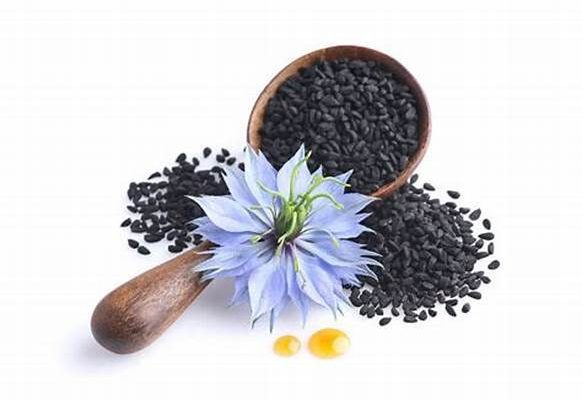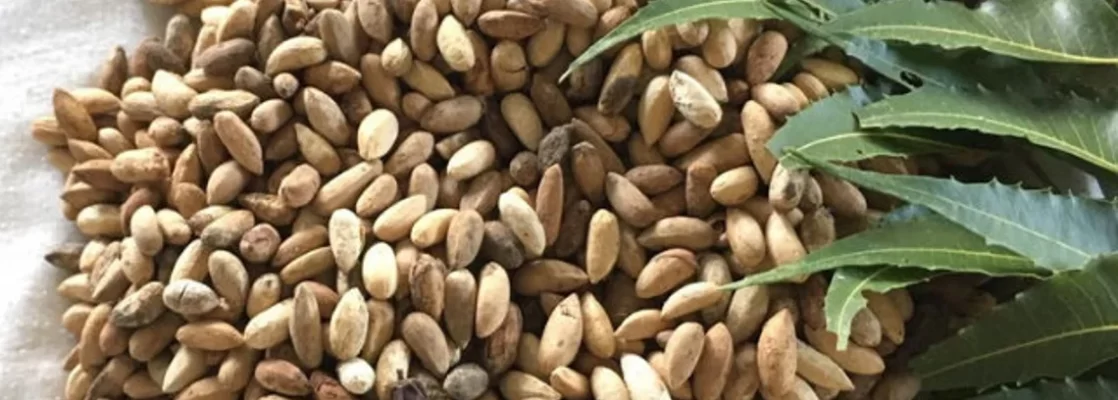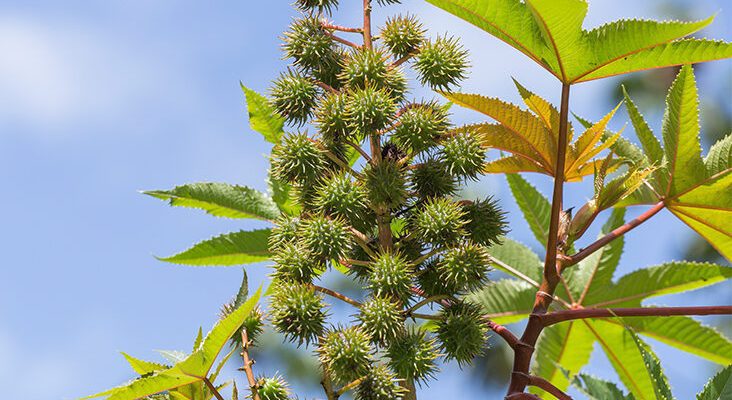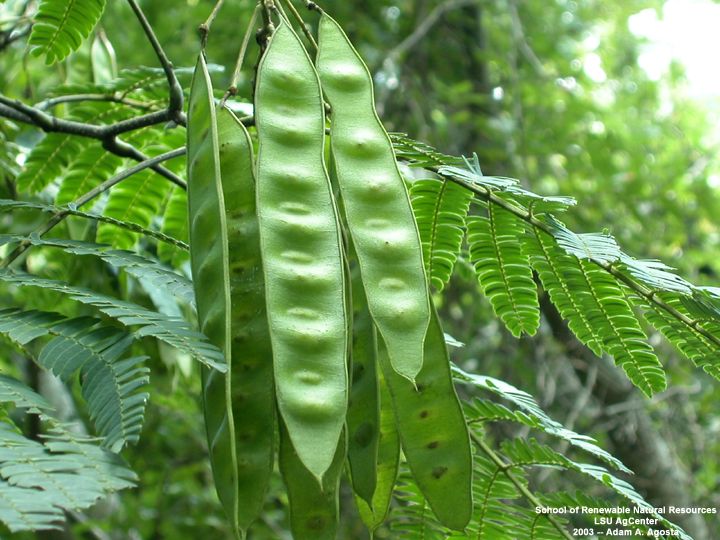Black seed

Black seeds, also known as Nigella sativa, are a common kitchen ingredient with a pungent, bitter, and peppery flavour with nuances of the aroma of oregano and nutmeg. They are also called onion seeds, fennel flower seeds, black caraway, Roman coriander, and kalonji. These seeds are added to Mediterranean and Indian cuisines to flavour curries, side dishes, and stir-fried vegetables. Even in baking, these seeds are used extensively in naans, flatbreads, and sweet and salty cookies.
Health benefits of black seeds
- Lowers high blood pressure: The antihypertensive effect of black seeds helps people in dealing with high blood pressure. A study corroborated the daily use of Nigella sativa seed extract for 2 months in lowering the blood pressure of patients with mild hypertension.
- Controls type 2 diabetes: Regular intake of black seeds can increase beta-cell function in the pancreas and can help control diabetes. A study observed reduced levels of fasting blood glucose, insulin resistance, and HbA1C for a period of 12 weeks.
- Reduces asthma symptoms: Black seed oil has been shown to reduce the symptoms of asthma.
- Improves rheumatoid arthritis symptoms: Black seed oil has been shown to reduce the symptoms of rheumatoid arthritis.
- Reduces risk of cancer: Black seed oil has been shown to have anti-cancer properties
Chemical properties of black seeds
- They contain a high amount of essential fatty acids, vitamin B, fibre, carotene, and iron.
- They have a pungent, bitter, and peppery flavour with nuances of oregano and nutmeg.
- They have a dark grey colour and a triangular shape.
- They have a high content of thymoquinone, thymohydroquinone, and thymol, which are bioactive compounds that exhibit antioxidant, anti-inflammatory, and other therapeutic effects.
- They have antibacterial, antifungal, antiviral, antiparasitic, and anticancer properties.
- They have a low pH of 3.72, which indicates that they are acidic

How to use Black seeds for health benefits
There are many ways to use black seeds for their health benefits. Some of the common methods are:
- Roast the seeds and sprinkle them over your bagels, biscuits, naans, and breads.
- Add these seeds to your regular meals, such as curries, salads, soups, and stir-fries.
- Mix black seed oil with honey and take it one to three times a day.
- Make black seed tea by boiling a teaspoon of black seeds in water and drinking it after it cools down.
- Apply black seed oil onto your skin or hair for moisturizing and healing effects.
You can also buy black seed oil or extracts from the Repamp herbal centre. However, you should always consult your doctor before taking any supplements or using black seed for medical purposes.
A side effect of black seed
Some of the possible side effects of black seed oil are:
- Allergic reaction: Applying black seed oil directly to the skin may cause an allergic skin rash known as allergic contact dermatitis in some individuals. Symptoms may include redness, itching, swelling, and blisters. If you have a history of skin allergies, you should do a patch test before using black seed oil on your skin. If you experience any signs of an allergic reaction, stop using the oil and seek medical attention.
- Stomach upset: Taking black seed oil by mouth may cause stomach upset, vomiting, or constipation in some people. To reduce the risk of these side effects, you should start with a low dose and gradually increase it over time. You should also take the oil with food or water to avoid irritation. If you have a stomach ulcer, inflammatory bowel disease, or any other digestive disorder, you should consult your doctor before taking black seed oil.
- Low blood pressure: Black seed oil may lower blood pressure by a small amount in healthy adults. However, this effect may be harmful for people who already have low blood pressure or are taking medications that lower blood pressure. If you have low blood pressure or are on blood pressure medications, you should monitor your blood pressure regularly and talk to your doctor before taking black seed oil.
- Low blood sugar: Black seed oil may improve blood sugar levels in people with diabetes. However, this effect may also cause hypoglycemia (low blood sugar) in some people, especially if they are taking medications that lower blood sugar. If you have diabetes or are on blood sugar medications, you should check your blood sugar levels frequently and adjust your dosage accordingly. You should also consult your doctor before taking black seed oil.
- Bleeding risk: Black seed oil may have antiplatelet effects, which means it can prevent blood cells from sticking together and forming clots. This may increase the risk of bleeding, especially if you have a bleeding disorder or are taking blood thinners. If you have a bleeding disorder or are on blood thinners, you should avoid taking black seed oil or use it with caution. You should also inform your doctor if you are planning to have surgery or dental work, as you may need to stop taking the oil beforehand.
- Pregnancy and breast-feeding: There is not enough evidence to determine the safety of black seed oil during pregnancy and breastfeeding. Therefore, it is best to avoid using it during these periods. Some animal studies have suggested that black seed oil may have contraceptive effects, which means it may prevent pregnancy. However, this effect has not been confirmed in humans. If you are trying to conceive or are pregnant, you should not take black seed oil or use it with caution. You should also consult your doctor before taking black seed oil if you are breastfeeding.
These are some of the possible side effects of black seed oil. However, they may not occur in every one or may be mild and temporary. Black seed oil is generally considered safe when used in moderation and as directed. However, you should always consult your doctor before taking any supplements or using any natural products, especially if you have any medical conditions or are taking any medications.
Also, check
https://www.facebook.com/100081817735378/posts/pfbid02cR4heyHxMTLyqjoHE4QDF6iLdVHzFCb47E6qGjaS2E7YRBq9xMDWAusgE2wAPNX6l/








Review Black Seed (Nigella sativa).
You must be logged in to post a review.